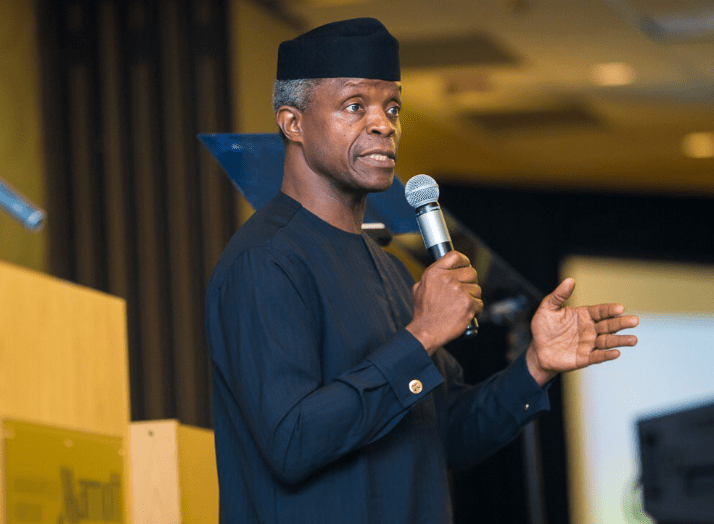Business
FG Plans To Buy Locally Assembled Cars, Says Osinbajo

The Federal Government has disclosed its plans to buy locally assembled cars rather than imported foreign ones.
President Muhammadu Buhari disclosed this in his speech delivered virtually by Vice President Yemi Osinbajo, on Monday, at the opening session of the 26th Nigerian Economic Summit Group Conference themed ‘Building partnerships for resilience’.
Responding to the issue of import duties raised at the summit during the speech presentation, the Vice President explained that the reduction of import duty on vehicles would help cut down transportation cost.
“The point of the reduction in levies on motor vehicles, commercial vehicles for transportation is to reduce the cost of transportation by reducing the cost of vehicles,” Osinbajo said.
He added, “With subsidy removal and the increase in fuel price and the pass-through to food prices, transportation costs had to be reduced. Now the automotive policy is directed at localising the production of vehicles.
“So the logic was increase the duty and levies so that local production becomes more competitive. But the annual demand for vehicles is about 720,000 vehicles per year. Actual local production is 14,000 vehicles a year.”
He noted that the current rate of production would not meet the serious national needs and this would mean higher prices of vehicles and greater strain on other sectors of the economy that depend on transportation.
Osinbajo, however, stated that the government was not giving up on the local auto industry.
He said, “Two important things to note; the first is that we still have relatively high duty at 35 per cent; so, there is still a disincentive for importation.”
Osinbajo added that the government was also promoting a policy of buying only locally manufactured cars.
Transport
Automated Points Concession : FAAN Workers Gave 72hrs To Revise Decisions In PH

Transport
FAAN Announces Pick-Up Points for Go-Cashless Cards

Business
Fidelity Bank To Empower Women With Sustainable Entrepreneurship Skills, HAP2.0
-
Politics3 days ago
2027: NIGERIANS FAULT INEC ON DIGITAL MEMBERSHIP REGISTER DIRECTIVE
-

 Environment3 days ago
Environment3 days agoLAWMA Director Says Sweeping Reforms Have Improved Waste Collection
-
Politics3 days ago
LP Crisis: Ex-NWC Member Dumps Dumps Abure Faction
-

 Politics3 days ago
Politics3 days agoUmahi Dismisses Allegations On Social Media, Insists On Projects Delivery
-

 Sports3 days ago
Sports3 days agoAbia Not Sure To Secure continental Ticket
-
Politics3 days ago
NATASHA ELECTRIC VEHICLES INITIATIVE IN KOGI CENTRAL
-
Sports3 days ago
La Liga: Yamal Records First Career Hat-trick
-
Politics3 days ago
IT’S A LIE, G-5 GOVS DIDN’T WIN ELECTION FOR TINUBU – SOWUNMI

